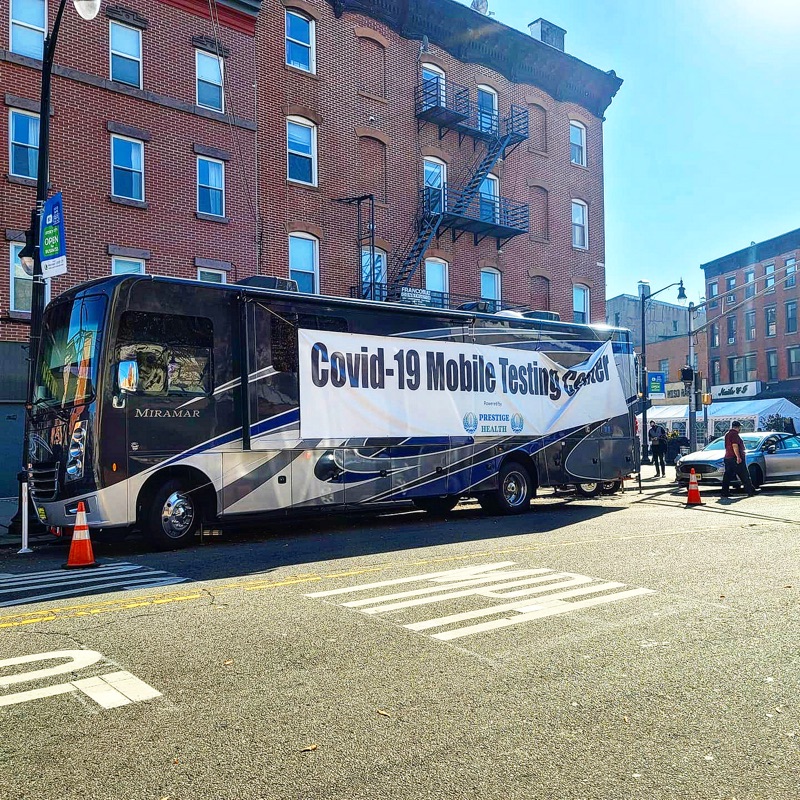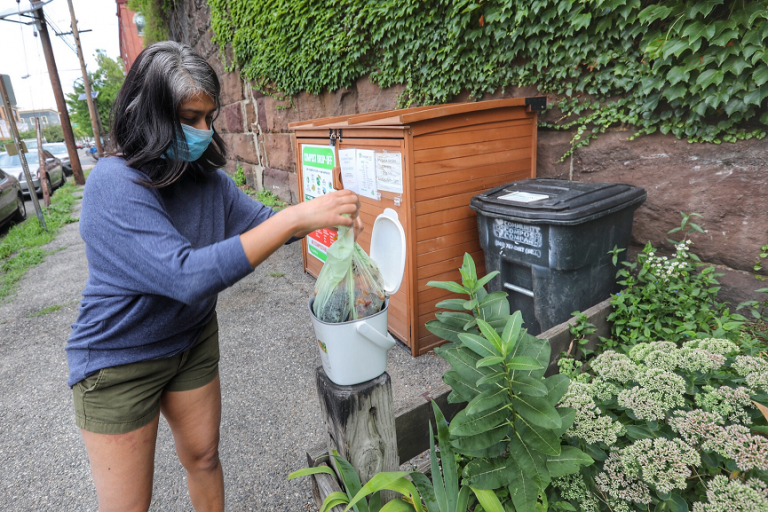Marc Wesson Van Vorst Park Jersey City
I’ve had the pleasure of interviewing Marc Wesson several times over the course of my tenure as a journalist in Jersey City. We met in the Van Vorst Park, of course. That’s where Marc can be found on any given day.
JCFamilies: How’s it going, Marc?
Marc Wesson: Hi there! Still trying to figure out what I want to be when I grow up. (laughs)
JCF: How many hours do you think you’ve spent working on this park?
MW: About a thousand each year, easy.
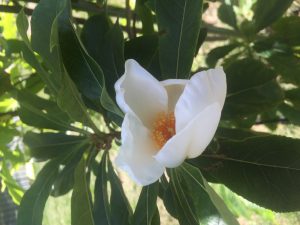
JCF: It looks beautiful as always
MW: Thanks. It’s a lot of work, and there are only two of us doing it.
JCF: It’s a full time job.
MW: I don’t consider it a job. But I do feel obligated to it. Having put so much of myself into it, and being a part of it from the beginning, makes it hard for me to walk away.
JCF: What would happen if you did that?
MW: If I walked away? If Jeff (Note: Jeff is Jeff Schwind. Wesson refers to him as “an integral part of the park’s success” on more than one occasion in the interview.) and I just stopped working in here, it would be a jungle in 3 weeks. It would be full of trash, everything would be over grown – it would be a free-for-all.
JCF: Do you get any time off? Or what month do you start?
MW: It’s constant. At the end of February we’re starting to prune, get everything ready for early spring.
JCF: This summer was hot as anything. Did that hurt the park?
MW: This summer was brutal just trying to keep the side lawns alive. We do have a sprinkler system for the gardens. That helped.
JCF: Was it tough financially? Who pays for this park?
MW: That’s a tough one – it’s tricky. I’ve put a lot of money in here over the years. We’re also a nonprofit, the FVVP. That helps us raise funds. The farmers market generates income; we have neighbors who contribute. The spray-ground was part of a state and county grant.
JCF: Was that a lot of work?
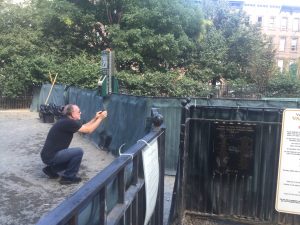
MW: I’d say yes, it took five years of paperwork, and three months to build. I got permission from the city, and then I designed it with help from the city’s architecture dept. The challenge is to let a private citizen do work in a public park. The city had to issue a license agreement, with the approval of the city council, and then I handed it over as a gift to the city when construction was completed. The dog run was another major effort.
JCF: Tell me about that.
MW: Well, after the park was renovated in 1999, dogs off-leash tore the new lawns apart. So the solution was to build a dog run, which I designed, helped raise funds for, and tried to make clear how important it is that dogs stay on leashes. Because once a dog urinates on a lawn, it’s gone for the season.
JCF: You know so much – how did you learn?
MW: Although I’ve had an interest since childhood, I had never done any professional gardening, so I took a master gardeners course just to get some formal training. It took 9 months. It was helpful to make sure we’re doing things right. We have to be careful about liability issues, to make sure it’s all safe. We obviously don’t want to poison a kid or a dog…
JCF: Overall, what’s it been like devoting yourself to this beautiful piece of land?
MW: Incredibly rewarding. People really do care about what we are trying to do in the park. And they surprise me! It’s the little things, like a couple of times, people I didn’t even know anonymously picked up my bill in a restaurant to thank me. It was really nice.
And I love to garden, to create something from something that wasn’t there. I get to see all the kids in here playing. They follow Jeff and I around, they want to help. We have weddings here now, and birthday parties. I’d put this park up against Gramercy Park in the city any day because of the variety of plants we have, and this is a public space.
JCF: Any advice to people around the city who want to create a space like this?
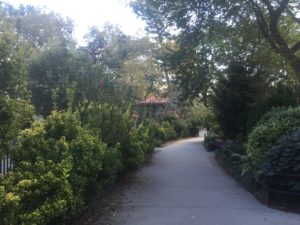
MW: We feel that the only way a park can be successful is if the community is involved in it. If the community is involved, they will help care for it.
Mel Kozakiewicz is a writer, editor, and educator. She has been living in Jersey City since 2003.




